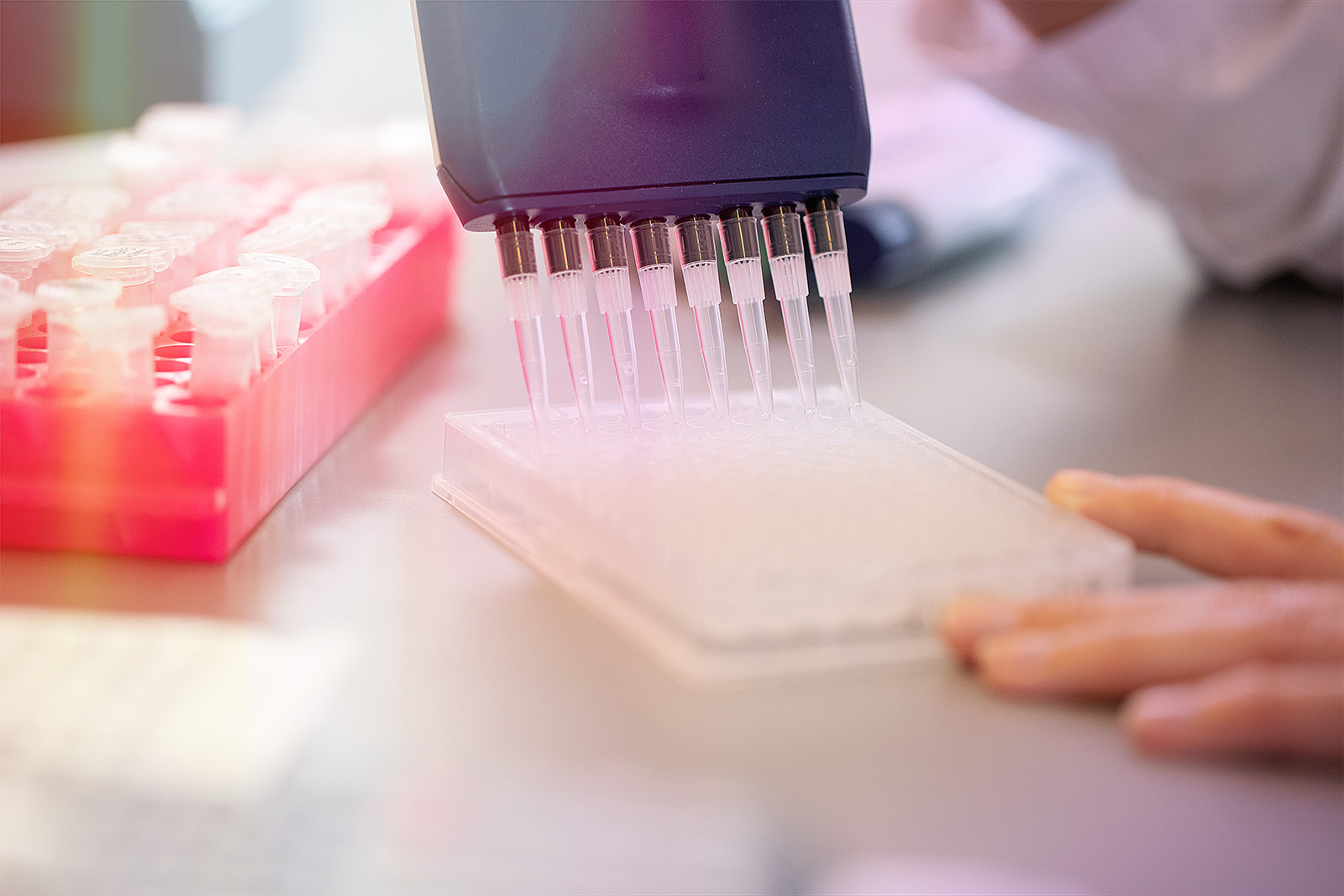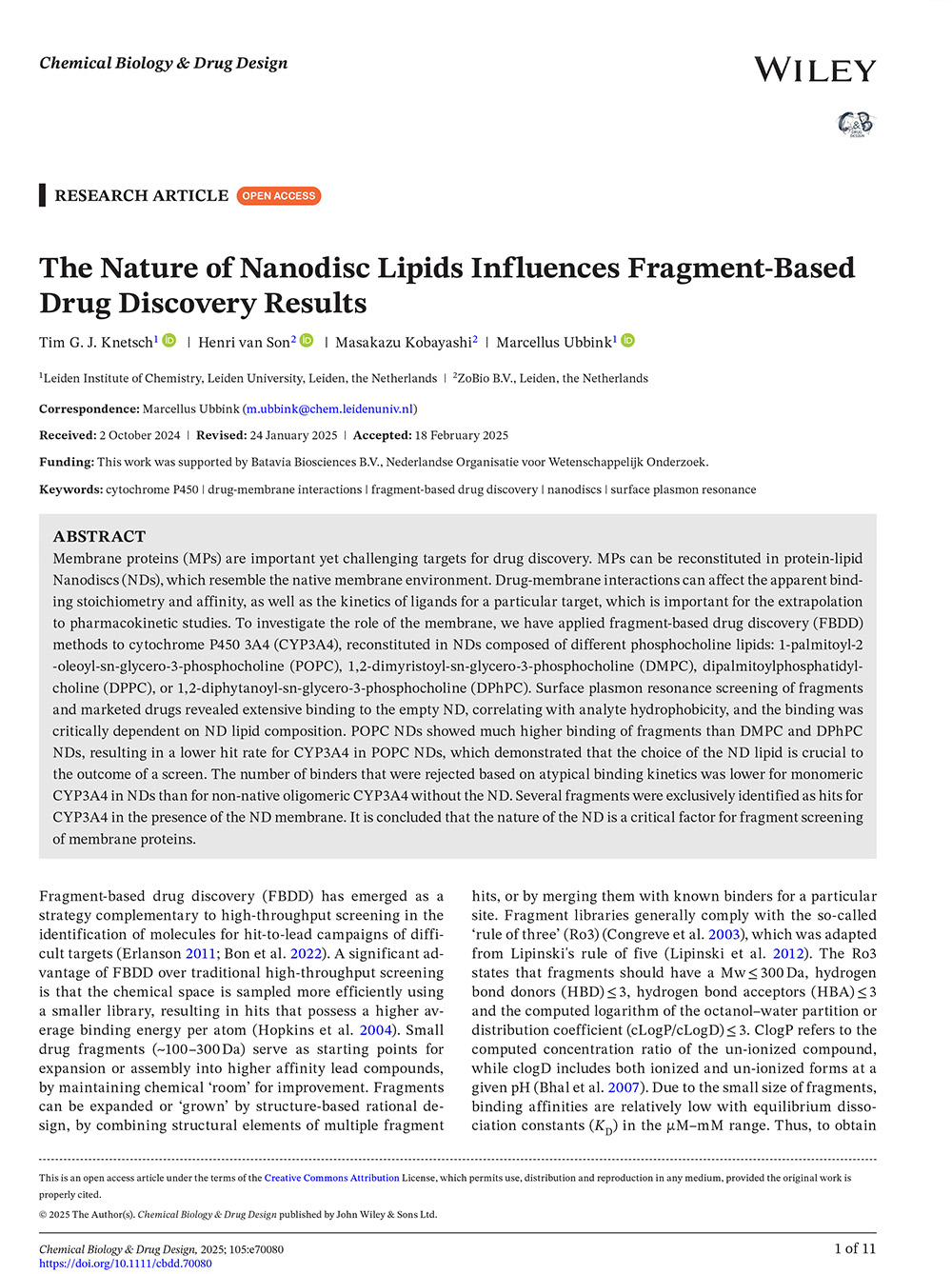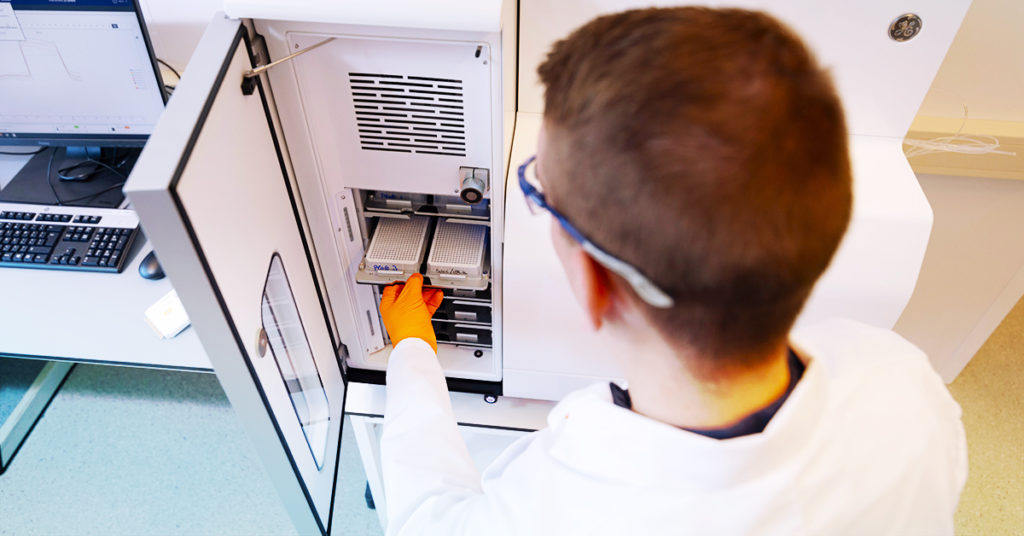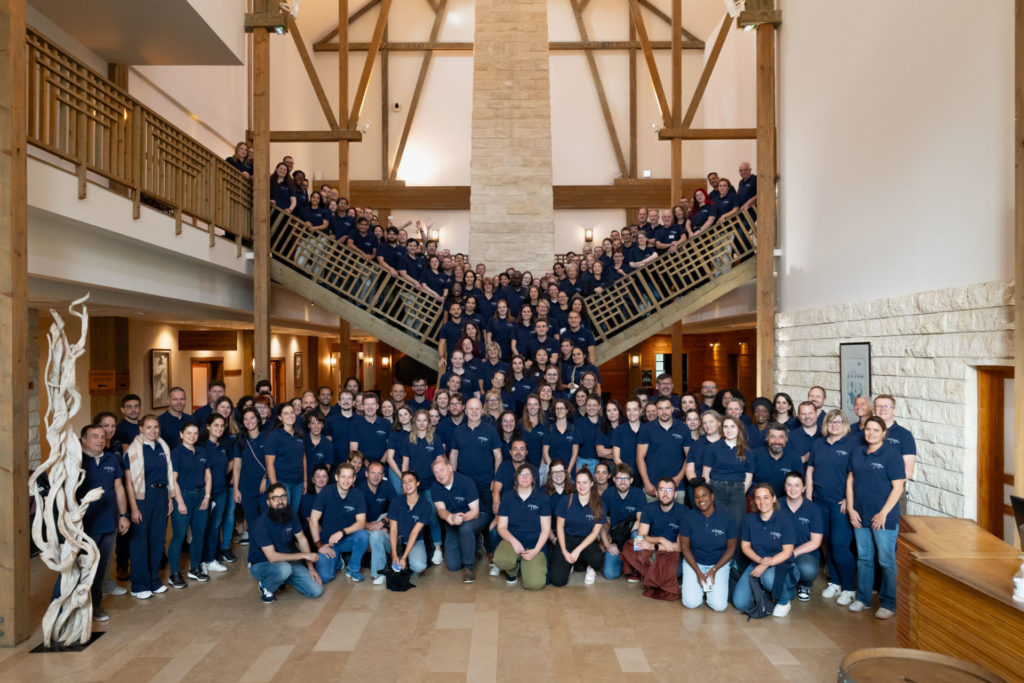


A new paper reveals insights into how lipid composition can influence and enable drug discovery for complex membrane proteins.
A large portion of the human proteome is made up of membrane proteins, which are highly influential in therapeutic development the targeting of molecules on the cell surface. However, due to the challenges inherent in reconstituting membrane proteins in a form appropriate for biochemical or biophysical screening, such activities have remained very limited.
In a recent study, a team from Leiden University worked with the Assay Development and Screening team from the Oncodesign Services-ZoBio group in the Netherlands to investigate an alternative approach to reconstitution using protein-lipid nanodiscs.
Nanodiscs more closely emulate the native environment of cellular membranes and small molecule partitioning within the membrane, and are therefore a powerful tool to study binding. The study described in this paper focused on screening small molecule fragments using SPR, a highly sensitive and popular alternative to high-throughput screening for efficient exploration of chemical space.
Through continued research and development, such as this study, important (yet challenging) targets are gradually becoming more accessible to drug hunters, opening potential new avenues of therapy for patients. The methodology and results of this research, funded by an Applied and Engineering Sciences grant from the Dutch Research Council, can be reviewed in a new joint paper published in March 2025.

The ZoBio team in Leiden, Netherlands, joined the Oncodesign Services group in early 2024, adding their extensive expertise and experience in tactical early discovery approaches to our existing late discovery and preclinical portfolio.



